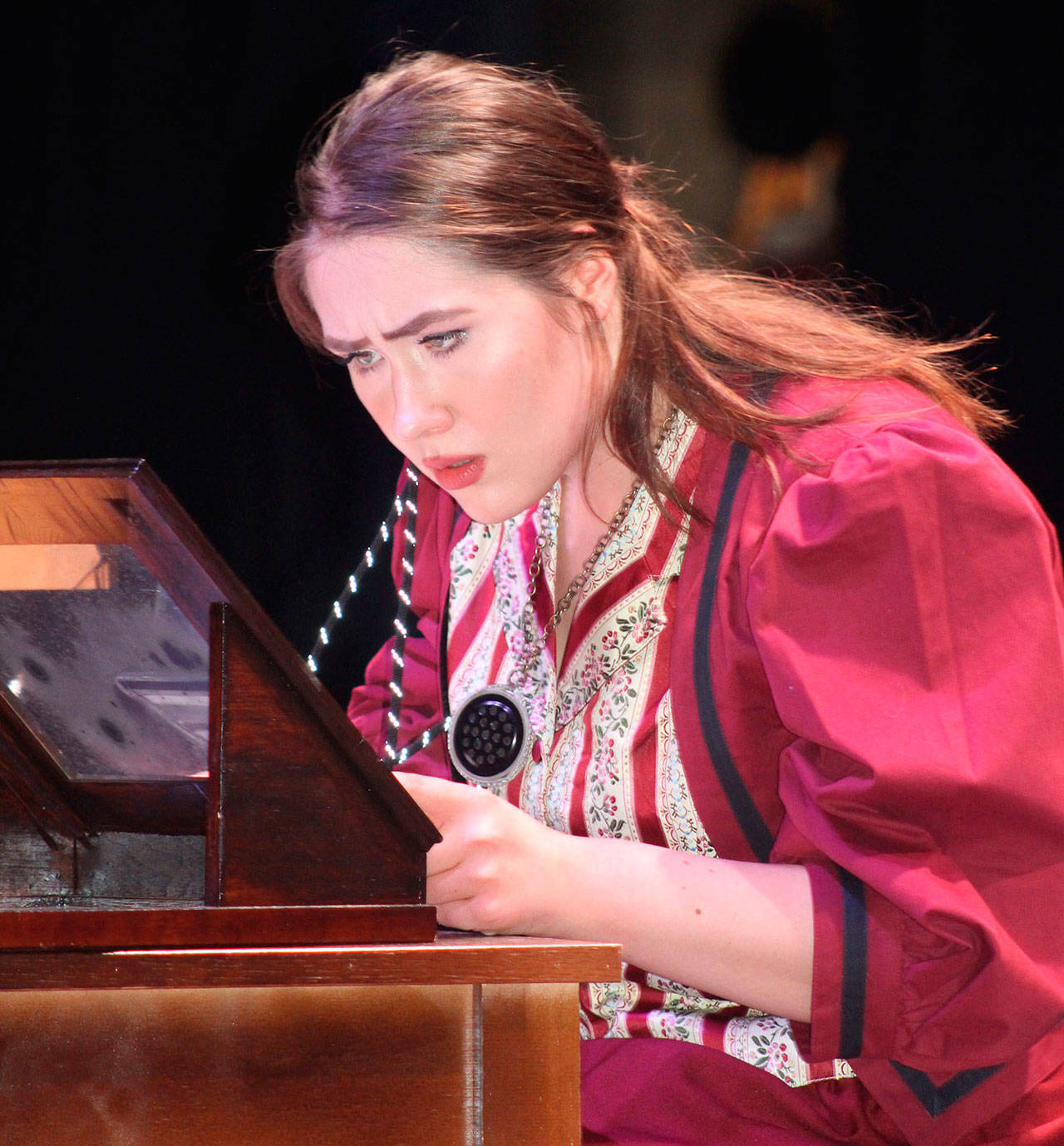She reached for the stars and changed astronomy forever. Henrietta Leavitt’s inspiring tale will be portrayed in the San Juan Community Theatre’s fall play.
“‘Silent Sky’ is the story of our aspirations, told through a specific remarkable woman who overcame incredible opposition to make her contribution,” said Nathan Kessler-Jeffrey, director of the play, and San Juan Community Theatre’s executive artistic director.
Performances are at 7:30 p.m., Friday-Saturday, Oct. 5-6; 7:30 p.m., Thursdays-Saturdays Oct. 11-13 and 18-20; and 2 p.m. Sundays, Oct. 7, 14 and 21. Tickets are available at www.sjctheatre.org/tickets or 360-387-3210. The cost for adults is $23, student reserved is $12 and student rush at door is $5. Thursdays are “pay what you can” at the door.
“It is funny, romantic, inspiring, heart-wrenching and gloriously beautiful,” Kessler-Jeffrey said, explaining why he chose the play. He added that the performance reminded him of staring into the night sky as a child, dreaming about visiting those distant otherworldly places.
“The play speaks to that spirit of exploration humans have always felt – that urge to break the limitations that contain us,” he said, adding that it does this by telling the often overlooked story of a determined and brilliant young woman, Leavitt – played by Essine Kilpatrick-Boe – at Harvard Observatory in the early 1900s. Adam Parrot plays her boss Peter Shaw, while Leavitt’s supervisor Annie Cannon is played by Deb Langhans. Leavitt’s co-worker Williamina Fleming is played by Carol Hooper, and Chelsea Bliss is Leavitt’s sister Margaret.
Leavitt passed away in 1921, not long after women in the United States won the right to vote. During her life, women were emerging from a time when they were forbidden from owning property, attending university, having legal custody of their children and refusing to have sex with, let alone divorcing, their husbands, said Kessler-Jeffrey.
Leavitt herself was able to attend and graduate from college. She later found work at the observatory. The common practice at that time was for men in positions of scientific authority to hire a group of women to do much of the work, Kessler-Jeffery explained. Women were less expensive to employ; Leavitt only received $10 a week, and the men took credit for women’s discoveries.
“The nauseating term for this practice was the harem effect,” said Kessler-Jeffery. “In rebellion to this, the Henrietta Leavitt of our play insists on following her curiosity wherever it leads her, and claims her work as her own.”
Leavitt’s memory has been honored by the scientific world. An asteroid has been named after her, as well as one of the craters of the moon.
Her work, and the work of her coworkers, became foundational to women taking on greater equality in the astronomical community, Kessler-Jeffery said. Cecilia Payne-Gaposchkin, for example, became the first woman to achieve a full professorship at Yale.
The play was written by Lauren Gunderson, who, according to Kessler-Jeffery, is currently one of the most produced playwrights in the United States. Other plays include “I and You,” “Christmas at Pemberley,” “Pursued by a Bear,” “Exit” and “The Book of Will.”
“I find her writing to be absolutely brilliant. Within the first six lines of ‘Silent Sky,’ Gunderson paints a beautiful portrait of who Henrietta Leavitt is, what her values are and what she is trying to achieve,” said Kessler-Jeffrey.
He added that when asked what Gunderson thinks the message of “Silent Sky” is, she replied that she wasn’t showing that women ask for special treatment, but how special women already are and always have been.
“We’re not asking anyone to let us participate, we are exclaiming that we have participated in discoveries, breakthroughs and wild achievement all along, despite being excluded, barred and presumed incapable,” she said in an interview with the Austin Playhouse, a theater in Texas.
“Humanity has braved oceans, mountains, the Arctic and more. We have defied oppression and tradition and gravity itself,” Kessler-Jeffery said. “This play illuminates the struggle we all experience to break free from the restraints that contain us.”



